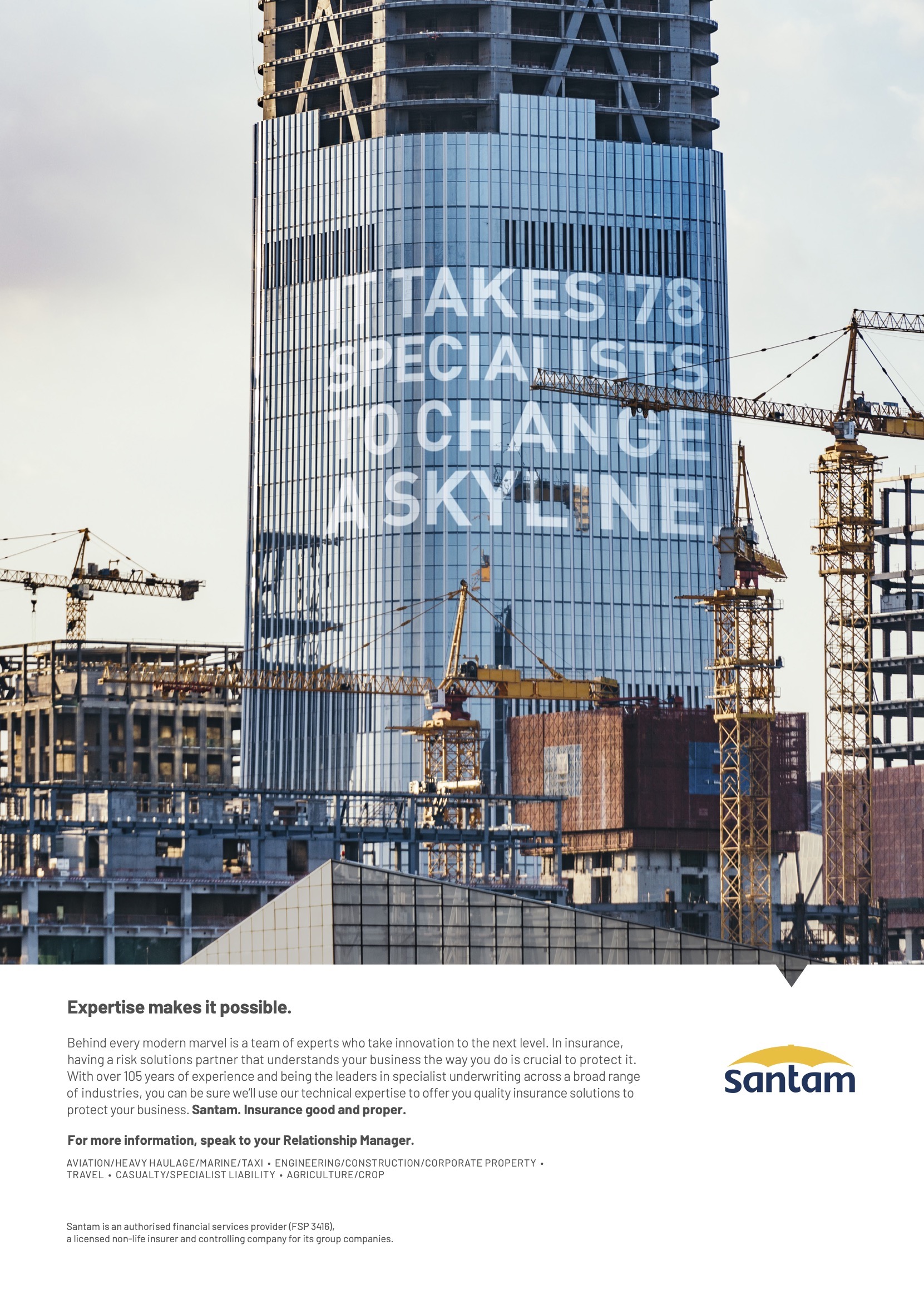Marine insurance is a critical factor in international trade, keeping the waves of the transportation sector in motion
By: Kennedy Ntenjwa, Head of Marine at Santam
International shipping channels are widely considered the lifeblood of the global economy with nearly 90% of internationally traded goods currently being transported by sea – and demand is expected to triple by 2050. Developing nations such as South Africa are particularly reliant on seaborne trade. According to Statista, the shipping industry was responsible for transporting almost 70% of South Africa’s total trade in 2022 and is a major contributor to the nation’s gross domestic product (GDP).
Adequately insuring these mammoth shipping vessels and the cargo they carry is therefore imperative to supporting the continued economic development of South Africa. Marine Insurance policies offer protection against a range of transportation risks which vary according to their role in the transportation value chain.
Beyond the benefit of a monetary claim payout to ensure business can continue, Marine insurers provide invaluable risk management advice and support that prevent potentially avoidable incidents from occurring.
Shifting trends
Given the continued growth in international trade, Marine insurers like Santam have seen an increase in import and export policy values. Another contributing factor is the challenges associated with the local energy crisis, which is driving demand for specific products related to the growing solar industry. Demand for cover of food and cell phones is also rising. The sum insured values are also impacted by the Rand/Dollar exchange rate and other foreign currencies.
The types of cover that businesses in the marine logistics value chain are seeking have also changed. At Santam, we have noted greater demand for Marine Cargo, Goods-in-Transit, stock Throughput, and Bailee/ Transporter coverage and Freight Forwarding coverage, which covers the cost of repairing or replacing damaged property/goods and may also cover any legal fees if sued.
Escalating risk landscape
There are also larger systemic risks linked to climate change, socio-economic challenges such as poverty, and geo-political risks at play that are impacting this sector and influencing insurance claims. Increasingly severe storms, political violence that often leads to widescale looting, the Russia/Ukraine and Israel/Hamas wars, and piracy all impact shipping cargo either on land or sea.

Expertise makes it possible.
Behind every modern marvel is a team of experts who take innovation to the next level. In insurance, having a risk solutions partner that understands your business the way you do is crucial to protect it. With over 105 years of experience and being the leaders in specialist underwriting across a broad range of industries, you can be sure we’ll use our technical expertise to offer you quality insurance solutions to protect your business. Santam. Insurance good and proper.
For more information, speak to your Relationship Manager.
Santam is an authorised financial services provider (FSP 3416),
a licensed non-life insurer and controlling company for its group companies.
Piracy, driven by extreme poverty and hunger, is a growing concern on multiple ocean-faring trade routes. The recently released International Maritime Bureau annual report, recorded 120 incidents of maritime piracy and armed robbery in 2023 compared to 115 in 2022, with entire ships being hijacked in some instances. The increase may seem marginal, but it is significant if one considers the value of the ships and their cargo. Kidnappings are also on the rise, highlighting the need for ship owners to consider adding a Kidnap & Ransom (K&R) policy to their arsenal of protection.
The risks that are currently driving claims in marine transportation are theft, hijacking and armed robbery, particularly for cell phones, solar panels and related items. Copper and cobalt are also high on the target list.
On the transporter side, fidelity/collusion-type losses (where employees are the perpetrators) are on the rise. We are also seeing a lot more catastrophe losses such as the KZN floods which impact goods cover under Stock Throughput policies. Changing weather patterns and rough seas are driving more damage-related claims.
Opportunity to strengthen the sustainability of the sector
The many environmental factors call for Marine insurers to review their policies and adapt their cover requirements to reflect the current heightened risk landscape and ensure this class of insurance can continue to protect the vital maritime transportation sector well into the future. This is where insurers can strengthen their partnership with clients by adding more value through risk management support.
The timing might also be right to consider the benefits of developing a local Trade Disruption Insurance (TDI) offering, which will require industry-wide collaboration. A TDI policy is designed to protect a vessel’s earnings against events affecting the entire supply chain and includes business interruption and political rioting – I believe this would be a game-changer.
The maritime transportation sector is vital for the economic growth of South Africa, and relevant insurance solutions are critical to keep these businesses operational while they navigate a myriad of challenges.

